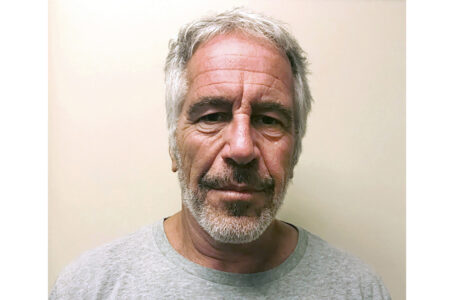Fri. 8:57 a.m.: More charged after 911 operator accused of not sending help

Kelly Titchenell sits on her porch in Mather, Pa., holding a photo of her mother Diania Kronk, and an urn containing her mother's ashes. A Greene County, Pa., detective filed charges against 911 operator Leon “Lee” Price, 50, of Waynesburg, in the July 2020 death of Diania Kronk, 54, based on Price's reluctance to dispatch help without getting more assurance that Kronk would actually go to the hospital. (AP Photo/Gene J. Puskar)
WAYNESBURG, Pa. (AP) — Authorities have filed charges against three more people in the case of a Pennsylvania 911 operator accused of failing to send an ambulance to the rural home of a woman who died of internal bleeding about a day later.
According to a criminal complaint, the three men were charged Monday with tampering with public records, tampering with or fabricating evidence and obstruction.
They are or were managers for Greene County’s emergency management. Prosecutors allege they failed to provide policy memo binders that detail standard operating procedures.
According to the criminal complaint, the three conspired to “knowingly and purposefully conceal, withhold, omit, obstruct or pervert the release of documents” to investigators.
Earlier this month, authorities charged 911 operator Leon “Lee” Price, 50, of Waynesburg, with involuntary manslaughter in the July 2020 death of Diania Kronk, 54, based on Price’s reluctance to dispatch help without getting more assurance that Kronk would actually go to the hospital.
“I believe she would be alive today if they would have sent an ambulance,” said Kronk’s daughter Kelly Titchenell, 38.
Price, who also was charged with reckless endangerment, official oppression and obstruction, questioned Titchenell repeatedly during the four-minute call about whether Kronk would agree to be taken for treatment.
In the 911 recording, an operator identified by police as Price replied to Titchenell’s description of her mother as needing hospital treatment by asking if she was “willing to go” to the hospital about a half-hour away from where she was living in Sycamore.
“She will be, ’cause I’m on my way there, so she’s going, or she’s going to die,” Titchenell told Price as she drove from her home in Mather.
Price said he would send an ambulance but then added that “we really need to make sure she’s willing to go.”
“She’s going to go, she’s going to go,” Titchenell said. “Cause if not, she’s going to die, there’s nothing else.” She said that Kronk was not thinking clearly and that she was her mother’s closest relation. When Price again asked if Kronk would in fact go, Titchenell replied: “OK, well, can we just try?”
After Titchenell told Price she was about 10 minutes from her mother’s home, Price asked if Titchenell would call 911 back once she made sure Kronk was willing to go in an ambulance.
“I’m sorry,” Titchenell said, and Price replied: “No, don’t be sorry, ma’am. Just call me when you get out there, OK?”
When Titchenell and her three children arrived at the house, she said, Kronk was nude on the front porch and talking incoherently. She got her mother to put on a robe.
“She just kept saying she was OK, she’s fine,” Titchenell said. “She’s the mom, you know — she doesn’t listen to her children.”
Titchenell said she could not call from the home because her mother’s landline could not be located and there was not cell service. She also did not call on her way home, believing that her uncle would soon check on her and that another contact with 911 would be pointless.
“This is unheard of, to me. I mean, they’ll send an ambulance for anything,” Titchenell said. “And here I am telling this guy that my mom’s going to die. It’s, like, her death, and she doesn’t get an ambulance.”
Her brother found the next day that their mother had died.






